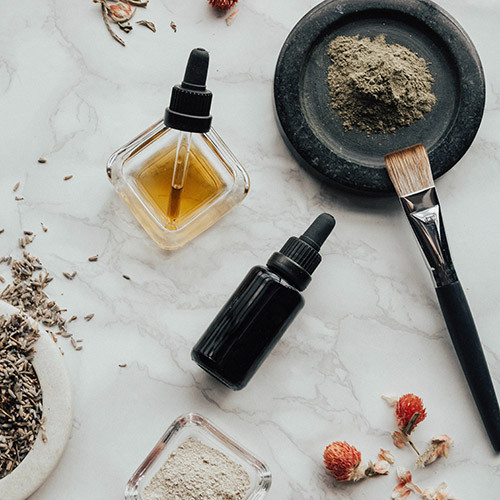You Use What?! The Truth About 4 Weird Skin Care Trends
Posted by Nikki Wisher on Oct 30th 2020
We all want beautiful, glowing, youthful skin that makes us feel confident with or without makeup, right? There’s no shame in that. To reach that dermatological fountain of youth, though, some people are constantly hopping from one trend to the next, looking for that one magical ingredient that solves all their skin problems.
That epic quest has led to some pretty crazy trends, to put it mildly. As it turns out, folks will put just about anything on their skin if they believe it will actually help. Here’s the thing, though: some of those crazy trends are complete nonsense, but some of them have actual science behind them.
How do you know which trends are legitimate and which are just a bunch of hot air? Let’s start with these.
1. The Nightingale Facial
This is a fascinating trend with a rich history. Traditional Japanese geishas wear extremely heavy makeup that tends to be rough on their skin. Around 1,000 years ago (!), as geishas were looking for ways to protect and repair their skin after using the harsh makeup, they started a trend that’s still spreading today: the nightingale facial.
Why is it called the nightingale facial, you ask? Because it involves applying nightingale poo to your face. It might not sound glamorous, but people today still pay hundreds for these unique facials.
So, does it work? Actually, yes, there is a reason why nightingale droppings have withstood the test of time. The poo contains high levels of urea, which helps your skin retain moisture. Luckily for you, though, the nightingale facial isn’t the only way to take advantage of urea’s benefits. Look for a skin care product with urea, like the Replenix Heel, Knee & Elbow Rescue Cream.
2. Apple Cider Vinegar
The widespread love of apple cider vinegar stems from this ongoing movement we have toward more natural skin care and beauty options. We’re all about the idea of more natural ingredients, but you have to do your research before you jump in. If you don’t, you could wind up wasting money on ineffective products or worse, damaging your skin.
Unfortunately, apple cider vinegar is one of those natural treatments that aren’t worth the risk. People use it because its high level of acidity makes is a natural exfoliant. The problem, though, is that it’s much too acidic to be safely using on your own skin. You would like an aesthetician or dermatologist to know how to safely use this strength of acid.
Especially if you have acne or sensitive skin, apple cider vinegar can be too irritating for your skin. Instead, stick with an exfoliant that is actually made to be used on skin.
3. Essential Oils for Acne
These days, essential oils are everywhere you turn. Some of what you hear is actually true. Certain essential oils have great benefits for your health and your emotional wellbeing, so diffuse away!
Essential oils are not a cure-all by any means, though, and they do have risks. Lately, there has been a growing trend toward using tea tree oil in particular to self-treat acne. Does it actually work?
This is another trend that actually does have science behind it but it isn’t safe for you to try at home. Tea tree oil does have natural anti-inflammatory and anti-bacterial acne. Depending on the root cause of your acne (which differs from person to person), tea tree oil could actually help.
For that oil to be safe, though, it needs to be diluted in a very specific way…probably not something you can pull off in your own kitchen. If you want to give tea tree oil a try, instead of taking a DIY approach, look for skin care products that contain this specific oil like the June Jacobs Pore Purifying Facial Bath.
4. Hemorrhoid Cream
This is probably one of the most well-known wacky skin care trends out there. You wake up after a not-so-restful night and the area under your eyes looks like someone inflated it with a bike pump. Thinking back to a tip you heard from your grammy dearest, you reach into the medicine cabinet and pull out the hemorrhoid cream.
The truth is, hemorrhoid cream actually can be effective in smoothing out puffiness under the eyes. It contains hydrocortisone which is an anti-inflammatory ingredient. Depending on the cause of your puffy eyes, that inflammation control can make a powerful difference.
There’s a catch, though. Hemorrhoid cream also has a variety of other ingredients to do the job it’s meant for, and as a result, it can cause real damage if you get it in your eye. Looking rested isn’t worth risking your eyes, so you’re better off sticking to products that are specifically made to reduce under-eye puffiness.
Skin Care Trends: Knowing the Difference Between Bingo and Bogus
We all want to think there’s one thing out there that could fix all our skin problems and that if we just try enough options, we’ll find it one day. As honorable as your ambition is, you need to be careful not to damage your skin in the process.
Now that you know the truth behind these four weird skin care trends (and how to get the same advantages in a safer package), go forth with wisdom and seek out that glowing skin you want.

